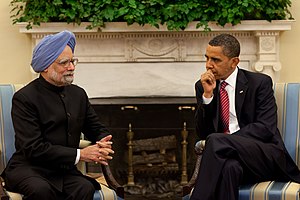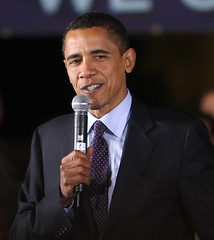Pakistan is at the vortex of three towering and magnificent mountain ranges-- the Grand Himalayas, the majestic Karakorum and the ruthless and bloody Hidukush. This confluence of the highest mountains in the world "creates space for shared economic development and security and stability in the adjacent regions."
"Dams being built in the Himalayan region can produce energy, sustain agriculture, conserve water, promote fisheries, and sustain communities": Ambassador Masood Khan speaking at a seminar titled "Stability and Development of Himalayan Areas" at Southwestern University of Political Science and Law.
The Indus brings water, and silt which is instrumental in crop growth. The Glaciers also bring floods and misery to the people. The Indus joins Pakistan and China in friendship and divides Pakistan ad Bharat in perpetual Hydro Wars.
The Himalyas have been the fountainhead, and the lifeblood of the people of the Indus. World experts gather together periodically to discover the potential and unmask the mysteries. "Ms. Sujata Koirala, Deputy Prime Minister and Foreign Minister of Nepal was the Chief Guest on the occasion. Zhang Guolin Secretary General of CPC, Southwest University of Political Science and Law and Professor Li Xiguang, Director Chinese Academy of World Agendas were also present."
- Ambassador Masood Khan said that we can use the abundant resources of Himalayas to reduce poverty, adding it is also our collective responsibility to preserve the biodiversity, ethnic richness, and cultural heritage of the Himalayas.
- Pakistan has welcomed China's investment in hydropower sector, Khan said adding "with the support of Chinese Government's concessional credit lines as well as credit insurance, we have been able to attract top Chinese companies to invest in Pakistan's hydel sector".
- The major Chinese companies, which include CWE, Gezhouba, DEC have been working on small and large projects. Our collaboration on Kohala and Neelam-Jhelum projects has been successful. Now, we are looking at even bigger projects like Bunji, Diamar-Bhasha, and Dasu, said Ambassador Khan.
- He said that the "Abode of Snow", as the Himalayas are literally called, are the most glaciated region outside the North and South Poles. The glaciers and waters of the Himalayas are a source of life, livelihoods, and sustenance in our region. Hydro World.
The Himalayas present mountains of opportunities to overcome the loads of issues that are presented to the South Asians. The Himalayas have been the life line for the people of the Indus for thousands of years. Pakistanis five thousand years ago were drinking the water from the Himalayas, using the glacier water for trade, and harnessing the energy in terms of small "pan chakkis" or water dams. Bharat at the peak of the Indus valley was jungle and and Ganges Valley did not have a civilization. That came later--centuries later.
- "At least 1.3 billion people are directly and half of humanity is indirectly dependent on them. Such is the importance of the Himalayas
- which is the backbone of multiple adjoining regions," Ambassador Khan observed.
- He pointed out that 14 of the highest peaks in the world are located
- in these diverse mountain ranges spreading from the Karakorum all the way to the Tibetan Plateau. They inspire people and lift their spirits. For many the Himalayas have sacred and religious value.
- The Himalayas, he said are truly a global heritage, as they have been over the centuries overseeing the interchange of civilizations from the Indus Valley to the Tibetan Plateau to the Brahmaputra Basin.
- "The Himalayas Mountains do not divide but unite South Asia, China and South East Asia. The 2,400-km long arc of the Himalayas thus constitutes a "trans-border", not a border".
- The Indus and Sutlej rivers, for instance, originate from the Himalayas, but run through the lands of Pakistan. Similarly, the Mahakali, the Ganges, and the Brahmaputra start from the Himalayas, pass through South Asian lands and flow into the oceans and seas.
- The Himalayas join at least six countries "Afghanistan, Pakistan, China, India, Nepal, and Bhutan" and many regions as common eco-systems with shared geography and topography, he added.
- It is therefore our collective responsibility to preserve biodiversity, ethnic richness, and cultural heritage of the Himalayas, he said, adding we can use the abundant resources of the Himalayas to reduce poverty. Hydro World.
Kashmir Life reports that "Pakistan had earlier raised objections over the 240 MW Uri-II project being constructed on Jhelum River in Jammu and Kashmir and the 44 MW Chutak plant being built on Suru, a tributary of Indus River in Kargil district. This was, perhaps for the first time that Pakistan has accepted the designs of power projects at the level of Permanent Indus Commission. Earlier, it took a ministerial meeting to make Pakistan agree to Salal Power Project.".
Through subterfuge and lies, Bharat has been able to get control of water that flows down through Kashmir. While Bharat's Aqua wars continue unabated, Pakistan has to deal with the new realities. Internal consensus and an army of engineers is needed to overcome some of the impediments faced by the nation.
It can also become the most visible and the massive project for environmental protection. We must work together to reduce the impact of climate change on this precious network of ecosystems, Khan noted.
- Recently, Ambassador Khan said, Premier Wen Jiabao paid a successful visit to Pakistan.
- During the visit, the two sides affirmed that Pakistan-China relations have gone beyond bilateral dimensions and acquired broader regional and international ramifications.
- We also said that friendship between Pakistan and China serve the fundamental interests of the two countries and the peoples, and contribute to peace, stability and development in the region and beyond.
- Pakistan and China would explore the feasibility of establishing joint programmes on environmental studies, in particular research and exchange of information on shared ecosystems.
- "We have decided to set up an Energy Cooperation Mechanism to push forward cooperation in conventional, renewable, and civil nuclear energy" he observed.
- South Asia and China are water stressed regions. It is important for us to develop a regional approach on waters, glacier melting, water conservation and watershed management.
- We also need to use the Himalayas and the related mountain chains for enhancing connectivity through more road and rail links.
- "If centuries ago, Fa Xian and Xuan Zang could cross mountains, we can do so much more easily by using modern technology for the good of humanity" Khan stressed. Hydro World.
Hydro world reports that the water resources are a rich means of hydroelectric energy and described the launching of Institute of Himalyas Studies in Chongqing city.
- He expressed the confidence that the Institute of the Himalayas will help us realize this dream by means of precise and well targeted research and deeper understanding of the Himalayan region.
- "I am sure the Institute, under the guidance of its leadership and in the supportive environment of Chongqing, will conduct very valuable studies on Himalayan glaciers, judicious use of water resources, climate change, and flora and fauna. But, most importantly, the Institute can emerge as a vehicle for dialogue on the Himalayas to promote stability, security and stability in the region" he said.
- China, he said is an active observer of the South Asian Association for Regional Cooperation (SAARC). The Himalayas can become a catalyst for even closer relations between the two regions. Hydro World.
The Indus Water Treaty is a colossal bone of contention between the two South Asian giants. Prime Minister Syed Jammat has finally fired Ali Shah. He had been Indus Water Treaty Commissioner for more than a decade. According to news reports he was unceremoniously removed by Islamabad last week.
Kashmir Life reports that "The development came at a juncture when Pakistan had moved the International Court of Justice (ICJ) over the 330 MW Kishanganga project coming up in Bandipora district in scenic Gurez Valley. Pakistan’s objections are that diversion of waters from Kishanganga rivulet (also called Neelam) would leave almost a 100 km stretch of Neelam Valley across the LoC barren. Pakistani sources say, he was replaced because of “his persistent differences with Assistant Advisor to Prime Minister on Water, Kamal Majidullah on some sensitive issues.".
Commissioner Shah had been the target of intense criticism and was much despised by nationalists who claimed that mr. Shah had not properly represented Pakistan's case in front of the Bharatis. Commissioner Shah was replaced by Sheraz Memon, an official of Sindh Irrigation Department.
The Himalayan Indus still offers opportunity to the people of South Asia. It is up to the people of South Asia who need to harness it for the collective good of the people of the region.
Sources: The Tsinghua International Center for Communication Studies, the Chinese Academy of World Agendas, and Southwest University of Political Science and Law on the inauguration of the Institute of the Himalayas Studies Published by HT Syndication with permission from Right Vision News. For any query with respect to this article or any other content requirement, please contact Editor at htsyndication@hindustantimes.com. Pakistan: Himalyas water resources rich of hydroelectric power generation: Pak envoy. Right Vision News, December 30, 2010
Related articles
- China' growing influence in Turkey and Pakistan (azadkashmirtimes.com)
- Bharat's broken promies (kashmirpunch.com)
- China: 'Pakistan is our Israel' (rupeenews.com)
- The destroyer of roads - US: The re-builder China (newpakistantimes.com)
- Bharat's promises are always broken (pakistanakhbar.com)
- How many promises has Bharat kept? (newpakistantimes.com)
- Why doesn't India keep its promises? (pakistanindependent.com)
- Pakistan and China accept Kashmir as disputed (timesofsrinagar.com)
- Delhi speaks with forked tongue: Broken promises (azadkashmirtimes.com)
- Delhi's broken promises (timesofsrinagar.com)
- USAID Study Says Climate Impact on Himalayas Remains Unknown, but Worrisome (nytimes.com)
- WikiLeaks: Dalai Lama Told US Officials Saving Himalayas Even More Important than Tibet's Political Future (grantlawrence.blogspot.com)
- Pollution in the Himalayas: Time to call the sweep? (economist.com)
- China Pakistan to 'deepen strategic cooperation' during PM Jibao's trip in Dec (timesofislamabad.com)
- Tit-for-Tat: Chinese PM to visit Pakistan in Dec. (pakistanakhbar.com)
- Pakistan to move closer to China during PMs visit in Dec (pakistanindependent.com)
- Pakistan counters Obama trip with China PMs trip to Islamabad (viewstimes.com)
- China PM to visit Islamabad in Dec to 'deepen strategic cooperation' (pakpunch.com)
- Chinese PM Jibao to 'deepen strategic cooperation' during Dec trip to Islamabad (newpakistantimes.com)
- When will the occupation of Kashmir end? (pakistanindependent.com)













